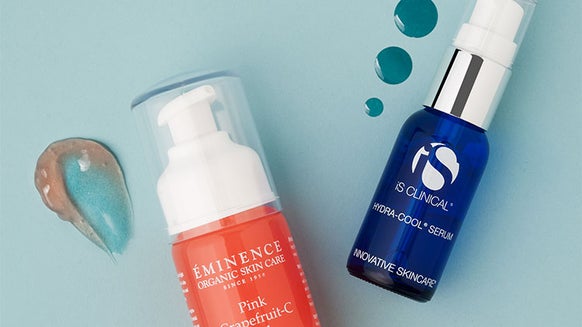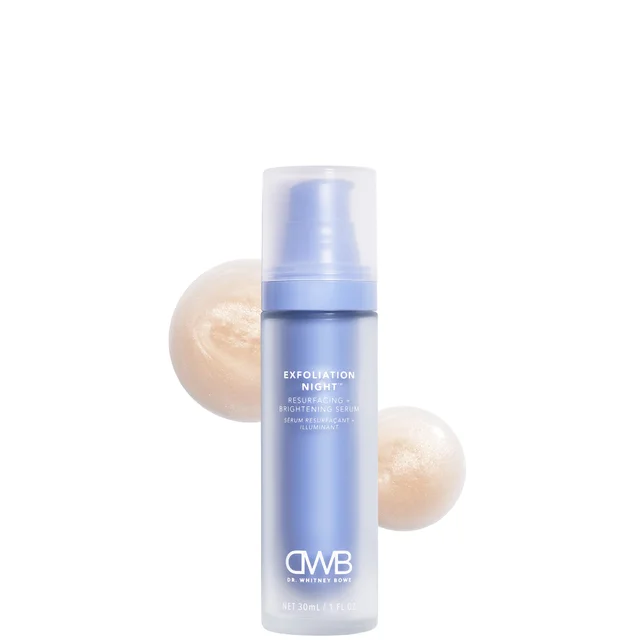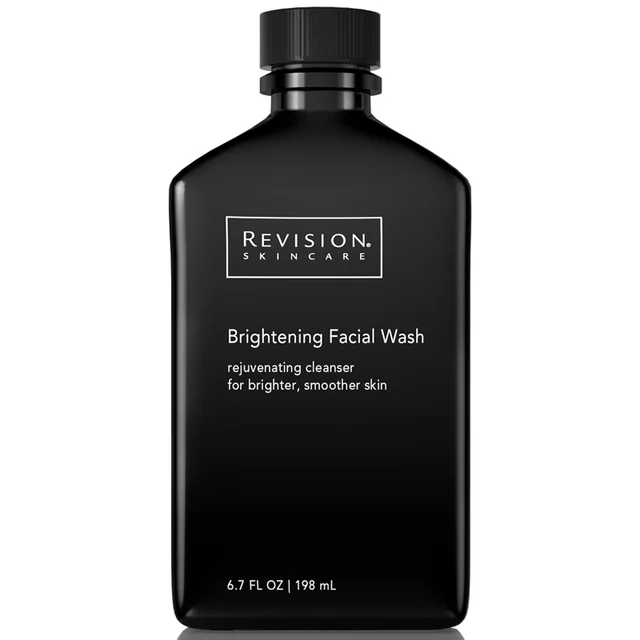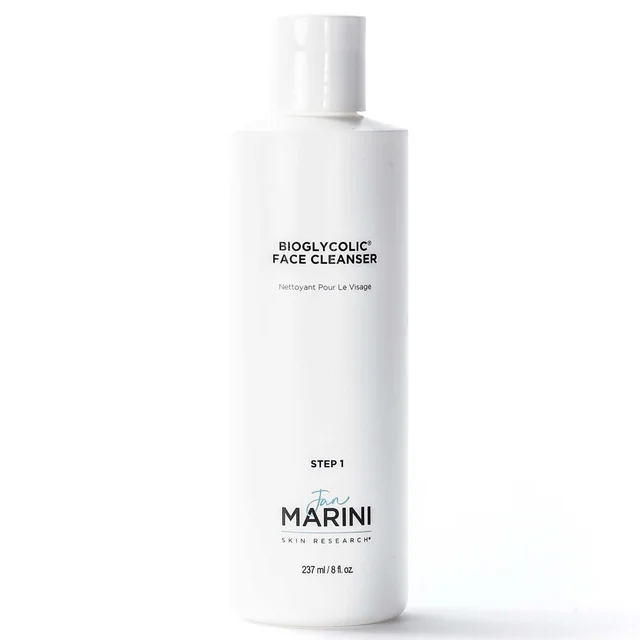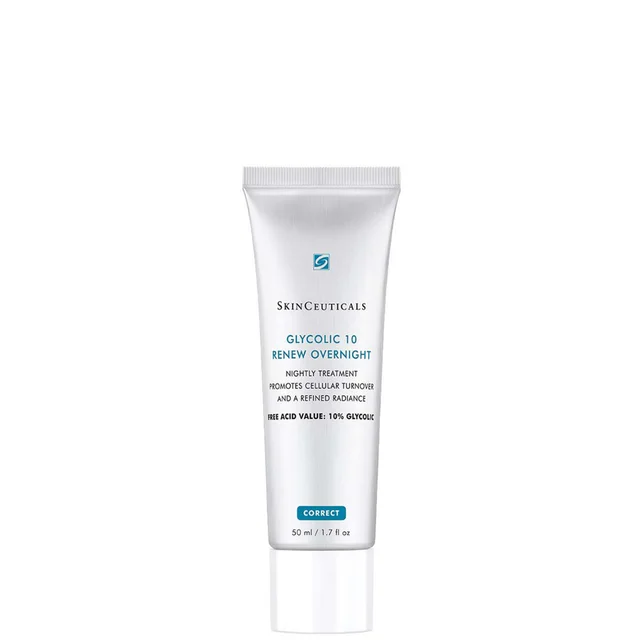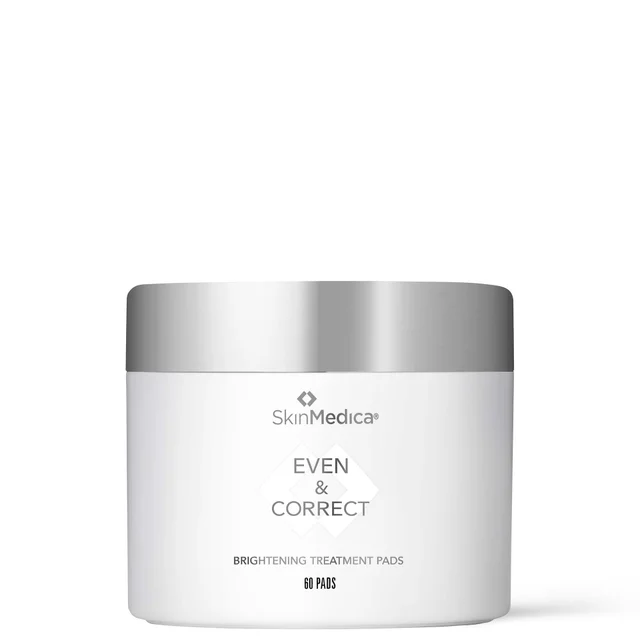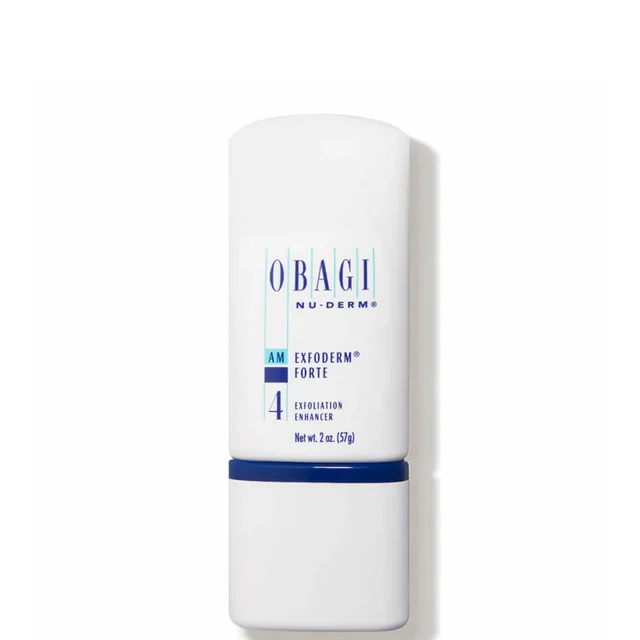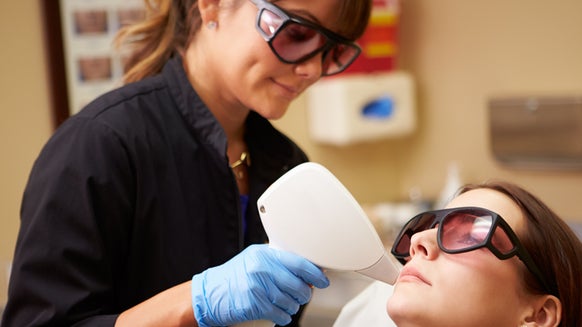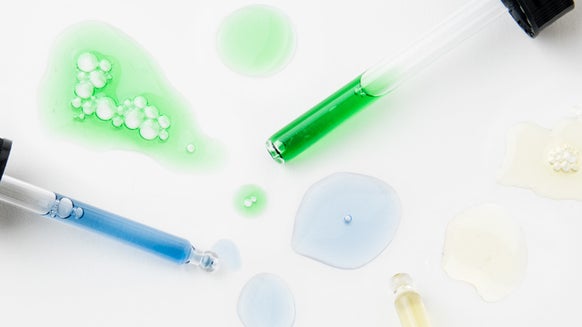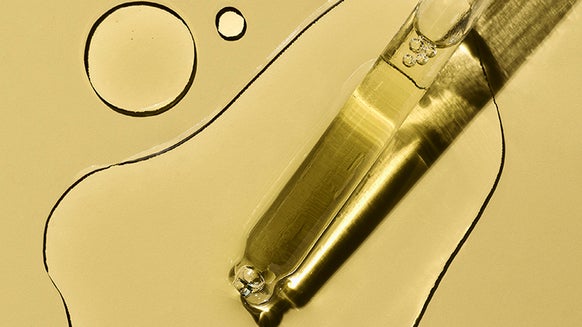How to Use Glycolic Acid and Other Treatments to Fade Acne Scars
Your teenage years may be nothing more than a memory, but for some, the physical scars from pubescent acne may still linger. Acne scarring can have several causes, and those with stubborn cystic acne are more likely to scar than mild acne cases. No matter if your acne scars are a texture or pigment issue, luckily, there are several ingredients, like glycolic acid for acne scars, as well as different treatments that are effective on acne scars, such as fillers, chemical peels and exfoliators, lasers, and even dermabrasion.
What Are Acne Scars?
Any acne breakout can result in a scar, but the more inflamed and chronic the pimples are, the more likely they are to leave behind scarring. Acne scars surface after an inflamed acne lesion. When the breakout is severe, there's swelling deep within the follicle, and as an attempt for the skin to heal, inflammation sets in along with the production of new collagen. As excess collagen forms where the breakout once was, the skin is often left discolored or with a rough texture. Some acne scars fade away on their own over time, while others are more permanent, leaving pits, divots, and depressions in the skin.
What Causes Acne Scarring?
Any type of acne is susceptible to scarring, but for the most part, more inflammatory, nodular, and cystic acne causes scarring. While acne scarring is the body's way of self-healing breakouts, picking and popping pimples can also cause a scar since the materials of the pimple can spread, creating additional inflammation and trauma.
Related Article:Understanding Acne: A Guide To The Different Types And How To Treat Them
How Does Glycolic Acid Treat Acne Scars?
Glycolic acid for acne is an effective treatment for active breakouts and treating the left-over effects long after they've healed. Since the acid, which falls under the category of being an alpha hydroxy acid (AHA), is a chemical exfoliant, it can help break down hyperpigmentation and discoloration that results from acne as well as soften the look of indented acne scars.
Sugar cane-derived glycolic acid is a small enough molecule that can penetrate the skin to loosen up the "glue" that holds dead skin cells onto the skin's surface while breaking down oil and dead skin. By loosening this bond and exfoliating away these cells, the skin can push new, fresh skin cells to the surface for a brighter, smoother complexion. Since glycolic acid also has anti-inflammatory benefits, using glycolic acid for acne can help reduce the presence of acne-causing bacteria and inflammation that comes with breakouts.
Another reason glycolic acid is commonly used as part of a proactive acne treatment plan is that it has been shown to stimulate collagen production, leading to a skin-smoothing effect. That means that areas where rough texture remains from past breakouts can improve with regular use.
Best Glycolic Acid Products for Acne Scars
1. Dr. Whitney Bowe Beauty Exfoliation Night Resurfacing + Brightening Serum
This award-winning, dermatologist-developed exfoliating serum goes hard to work to improve the look of the skin's texture while restoring a natural luminosity to it. A blend of glycolic and salicylic acids refines the skin's texture and tone while lifting away dead skin cells for a difference in your skin and feel.
Key Ingredients: Glycolic acid, lactobionic acid, gluconolactone, salicylic acid, postbiotics
Skin Type: Mature
Skin Benefits: Exfoliates without irritation, reduces the look of fine lines, improves skin texture and tones, brightens
Beauty Insider Tip: When used as part of a skin cycling program, this serum should always be used on night one.
2. Dr. Dennis Gross Alpha Beta Universal Daily Peel
A cult-classic skincare staple, this two-step daily-use peel is loaded with AHAs and BHAs to help reduce the look of acne scars, pimples, enlarged pores, and excess shine. Perfect for first-time peelers, the unique blend of acids exfoliates the skin effectively without drying it out, leaving you with brighter, smoother, more youthful-looking skin.
Key Ingredients: Exfoliating acids, chamomile, retinol, green tea extract
Skin Type: Oily, normal, combination
Skin Benefits: Gives an immediate radiance, speeds up cell turnover, diminishes the look of fine lines and wrinkles, evens out skin tone and texture, calms, and protects
Beauty Insider Tip: Use step one and step two pads once per day in a circular motion on dry skin without washing off the formulas.
3. Revision Skincare Brightening Facial Wash
Not all facial cleansers can brighten and resurface the skin like this one does. With its gentle exfoliating powers and super cleansing effect, reach for this day face wash when you want to rid the skin of impurities while boosting the skin's tone and adding hydration, too.
Key Ingredients: Salicylic and glycolic acids, sucrose laurate, vitamins C and E, licorice, lily extract
Skin Type: Combination, normal, oily, acne-prone, nature
Skin Benefits: Brightens, exfoliates, provides antioxidant benefits, cleanses the skin without stripping it of moisture
Beauty Insider Tip: Since the cleanser relies on acids to exfoliate the skin, it may make the skin more sun sensitive, so daily use of sunscreen is recommended.
4. Jan Marini Bioglycolic Face Cleanser
Packed with a soap-free, non-irritating formula, this sudsless cleanser works its magic to remove every last trace of the day without needing a toner afterward. Plus, it gently exfoliates the skin without causing any redness to help make acne scars less noticeable while evening out the skin's tone and coloration.
Key Ingredients: Glycolic acid, sorbitol
Skin Type: All
Skin Benefits: Cleanses the skin, exfoliates, hydrates
Beauty Insider Tip: Use this cleanser daily to help improve the look of enlarged pores while achieving glass skin
5. Medik8 Sleep Glycolic Treatment
Wake up to more beautiful skin with enhanced texture and tone with this overnight brightening skin treatment. Designed to work while you sleep, the AHA-rich formula gradually delivers a dose of 10% glycolic acid into the skin so as not to overload or overwhelm it so the skin emerges visibly brighter and smoother.
Key Ingredients: Glycolic acid, glycerin, Korean clover extract
Skin Type: All
Skin Benefits: Removes dead skin cells, leaves skin smoother, improves skin tone, reinforces a healthy skin barrier, reduces the appearance of fine lines, wrinkles, dark spots, and congestion
Beauty Insider Tip: The pH-balanced formula (3.5) safely and slowly delivers glycolic acid to the skin where it needs it most while preventing skin irritations when used twice a week.
6. SkinCeuticals Glycolic 10 Renew Overnight
Powered by the exfoliating power of 10% glycolic acid, this overnight skin treatment helps to achieve clear-looking and brighter skin. Hard on acne scars but gentle on your skin, apply the leave-on formula at night and wake up to a perfectly hydrated complexion that boasts a natural glowy brightness.
Key Ingredients: Glycolic acid, phytic acid
Skin Type: All
Skin Benefits: Exfoliates, promotes skin cell turnover, supports the skin barrier, hydrates
Beauty Insider Tip: For more experienced skincare product users, pair the overnight treatment with retinol by alternating nights with each ingredient for maximum benefits
7. SkinMedica Even and Correct Brightening Treatment Pads
Treat your skin to a daily dose of brightening agents to help reduce acne scars, the discoloration that comes with them and uneven skin texture. A blend of glycolic acid, tranexamic acid, and niacinamide brightens the skin and leaves it with a healthy glow, helping prevent future discoloration forming too.
Key Ingredients: LTN Complex, glycolic acid, witch hazel
Skin Type: All
Skin Benefits: Preps the skin so it can better absorb other skincare products, reduces dullness, evens out the skin’s tone and texture, brightens
Beauty Insider Tip: Since the pads are free of alcohol, there’s no need to worry about them drying out the skin or leaving it irritated or red.
8. Obagi Medical Nu-Derm Exfoderm Forte
Consider this exfoliating lotion a must-have if getting rid of dark acne scars sits high on your skincare wish list. With a blend of glycolic and lactic acids, this calming formula decreases the look of hyperpigmentation while removing dead skin cells for a brighter, fresher complexion.
Key Ingredients: Glycolic and lactic acids, glycerin, kalaya oil
Skin Type: Combination, oily, normal
Skin Benefits: Exfoliates, decreases hyperpigmentation, smooths lines and wrinkles, hydrates, reduces redness
Beauty Insider Tip: Unlike other exfoliators that can cause the skin to react, this lotion calms irritations and redness before they start.
9. iS Clinical Active Serum
This super popular, fast-acting serum brightens the skin and reduces the look of post-acne marks quickly and long-term. It's also perfect for softening the look of lines and wrinkles. After just a few days of use, you'll notice smoother, brighter, and more evenly toned skin.
Key Ingredients: Bilberry, mushroom, sugarcane, white willow bark
Skin Type: All
Skin Benefits: Reduces the appearance of fine lines and wrinkles, softens skin texture, promotes smaller-looking pores, brightens the skin
Beauty Insider Tip: It’s normal for the serum to produce a mild tingling sensation upon application
FAQs
Is It Good to Use Glycolic Acid Every Day?
It all depends on the strength of the glycolic acid and what your skin can tolerate. Glycolic acid for acne treatments with a lower concentration may be safe to use daily, but those with stronger percentages of the acid may be too harsh to use every day. If you want to veer on the cautious side, use glycolic acid about two to three times per week, and if your skin can handle more, bump it up to every day.
Which Ingredients Should You Not Mix With Glycolic Acid?
Some ingredients should not be mixed with glycolic acid while others are okay. Of course, it all comes down to how your skin can tolerate the combination, but if it is easily irritated or tends to be more sensitive, it's best to use glycolic acid on its own. Some of the ingredients that should be avoided when using glycolic acid include pairing it with other exfoliating acids, niacinamide and retinol.
How Long Does It Take for Acne Scarring to Fade?
Acne scarring varies from person to person, and the length of time it takes to see a noticeable improvement in the skin depends on how long the acne has been healed and what type of scarring you are dealing with. On average, discoloration caused by acne can take anywhere from a few weeks to three or six months to start to fade. Skin texture changes, such as deep pitted scars, can take a year or more to soften out, while some are permanent and may never completely fade.
The Bottom Line
If you’re bothered by acne scars, no matter how fresh or old they are or what they look like, one of the best skincare ingredients to implement into your skincare routine is glycolic acid. When using glycolic acid for acne, the product treatment choices are vast so make sure to find one that’s most compatible with your skin to reap the benefits. The more consistent you are with sticking to a skincare routine that focuses on improving the look of acne scars, the more benefit you’ll see.

Elise Minton Tabin is an award-winning beauty journalist, editor, and beauty expert with more than 16 years of experience. She previously held the title of Executive Beauty Editor at NewBeauty magazine, where she reported on beauty, plastic surgery, anti-aging, health and wellness. She was also instrumental in the launch of the beauty supplement brand Hush & Hush. A self-professed beauty junkie and retinol and sunscreen pusher, Elise knows what’s new, what works and who’s the best to go for every procedure under the sun. Follow Elise on Facebook, Instagram, and on her beauty blog, elisetabin.com
Related Posts

Interview With the Experts: Julia Wills and Alex Kummerow of Herbivore Botanicals
